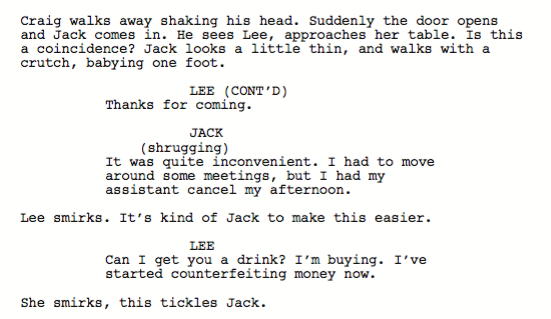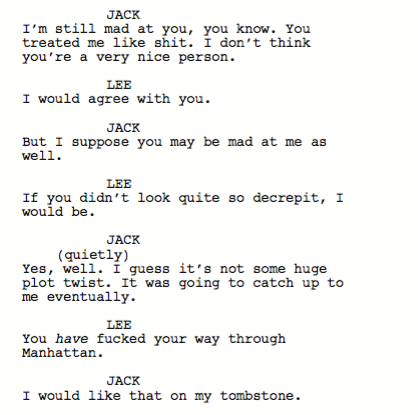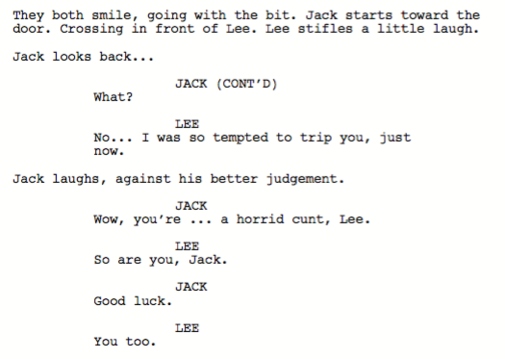by Jorge Molina

Marielle Heller’s Can You Ever Forgive Me? is a subtle study of a woman clinging to relevance in a world that not only has forgotten about her, but never took her into consideration in the first place. It’s about isolation, and loneliness, and people that already live at the margins marginalizing themselves even more. But it is also a rare, realistically moving portrayal of queer friendship; of the friendship of a woman with a man that’s just as forgotten and isolated as she is.
The screenplay adaptation of Lee Israel’s memoir by Jeff Whitty (of Avenue Q fame) and Nicole Holofcener (of many great pictures fame) tackles the relationship between Lee and Jack (Melissa McCarthy and Richard E. Grant in career-best performances) with nuance and bite, and never gives in to "likeability". Whitty and Holofcener know that sometimes friends happen to just not like each other...
Can You Ever Forgive Me?
Screenplay by: Jeff Whitty and Nicole Holofcener
Based on the memoir by Lee Israel
[You can read the full script here]
Throughout the movie, Lee and Jack have found unlikely allies on each other; people that understand the hustle of trying to survive in the unforgiving New York of the 1990s. People with heartbreak and personal aching to spare. They find solace and comfort in knowing they are not alone.
But they never fall into an unrealistic dynamic. They are both difficult people, which often rub each other the wrong way. They have flaws and bad habits and even worse attitudes. But underneath their interaction there is always a sense that they get each other more than anyone else ever will.
This is most evident on their last interaction in the film, and what we assume will probably be their last interaction ever. Less asks Jack to meet up at Julius’, which has served as the setting for most of their friendship, weeks after he helped the FBI investigation against her. And inadvertently killed her cat. Needless to say, they are not in good terms.

***

All through the conversation, the lines of dialogue show a masterful intermingling of resentment, melancholy, longing, anger, understanding, and (deep down) love and caring. They clearly have hurt each other deeply. They probably know the damage is irreparable. And they don’t hesitate in expressing this (“I’m still mad at you, you know. You treated me like shit.”).
But they also know that what they have is unique. It’s something they’d never find with anyone else. There was an implicit and immediate connection, one that anyone that is part of a marginalized group and that is friend with someone else in the same situation can relate to. There’s a common struggle. Even if you dislike, despise, and betray the other person, you’re still on the same boat. When they part ways at the end of the scene, their paths may never cross again, but they will remain with each other forever.
And if the mixing and weaving of all these emotions wasn’t enough, it’s all topped with a fantastic layer of humor. These people communicate through jokes and quips and stabs at each other. At the end of the day, people mess with their friends. They joke about their appearance, and the people they sleep with, and their habits. Even if the sentiment underneath are deeper and truer, that’s what friends do. That is why that final “I was so tempted to trip you, just now” is such a vital, fantastic last beat. It encompasses everything Lee and Jack were to each other.

Although Lee Israel’s story is front and center in Can You Ever Forgive Me?, the beating heart of the movie is the relationship she has with Jack. It’s one of the most honest, truthful, and nuanced depictions of friendship (specifically queer friendship, since it’s so rooted in their otherness) put into film in recent years, perhaps ever.
Jack serves as a mirror to Lee’s own defects, fears and self-destructive tendencies. He is a source of comfort, but also of conflict. She pushes him away, and yet needs him the most. Just like any good friend ought to do.